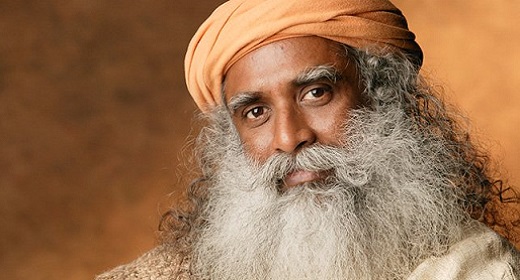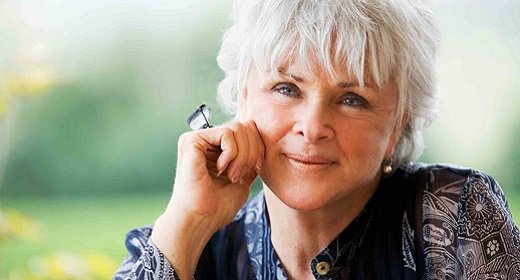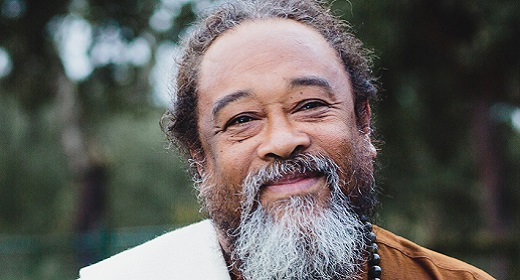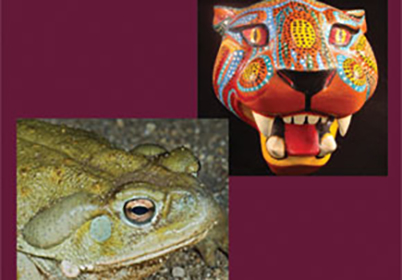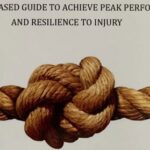Donna Quesada: And it seems like it’s willingness in seeing your part in shaping the pattern that is in place.

I was watching another session and a woman was hurt that her boyfriend didn’t help her move. And to make it less abstract and more tangible… because these are the problems that everyone has… you were into their stories, as I was, when I watched. I thought, wow.… I would be hurt too. I remember being in a similar situation… I had a headache and someone I was seeing didn’t come and check on me, at the time. And I had this idea, I’m always there for you… why didn’t you come to check on me? So, I was relating and putting my stories in there, as other people were telling you theirs.
Byron Katie: I love those YouTube things. Or, we put them on thework.com or byronkatie.com. They really are supporting a lot of people, just following along, as I’m sitting with someone I’m working with.
DONNA: Because the mind wants to argue. I’m watching and I’m thinking, yes… he should have helped. When do we get to draw a line, and say, “that’s not okay?” “It actually is a fault on the outside…”
KATIE: It shows up. “He wasn’t there for me.” Or, “he didn’t come help me.” Was that it? He didn’t help me. I didn’t help me. So now, I need to sit in… What could I have done that I wanted him to do?
DONNA: So, she’s turning it around. Rather than putting it on him and getting mad that he didn’t do what she wanted him to do.
KATIE: Let’s just say, I’m still angry. It doesn’t matter. I’m just trying on the shoe. I didn’t come help me. So, I’m just looking at where I could have helped myself and I didn’t. I mean, there are two of us, here. One is closer than the other. And I didn’t help me. So now, I understand why he wouldn’t. His mind is probably as full as mine was. I don’t know. But I was there and I could have helped me. That is, if I could validly find a way to help me for what I wanted him to do. So now, I’m no longer a victim. I’m slowly getting there. I’m not a victim. We are never a victim, it’s what we are thinking and believing that would cause us to believe that. So also, now, I’m being responsible. I’m no longer dependent. One inventory like that. One look at myself, like that. Going through these questions can change my entire identity from helpless victim, dependent victim, to someone who was there for me. To someone who really does care about me, who I wake up with in the morning, and go to sleep with at night.
DONNA: And someone who feels empowered.
KATIE: You want someone who is empowered. I don’t want to be. I am. I’m there for me. And I’m not dependent. And then, there is another turn around. “He didn’t come help me.” “I didn’t go help him.” So, am I able to get up and go in and say, “you know, honey? I had the thought I really needed you for like a glass of water or something. And I noticed you weren’t there. What were you going through?” And he might just laugh, and say, “my God, I didn’t even give you a thought.” And then, you can both laugh together because you understand that if you weren’t thinking of him, why would he be thinking of you. So, there is only one person to change in my world and I live with her. That’s responsibility. That’s being responsible. But I cannot shift the world into serving me. I can shift myself into serving the world and then, I can see that the world has always served me. Non-stop. Without exception. So, my work… Anything I have, is always free on byronkatie.com.
DONNA: You’ve said that flaws in others are your own projections. And that was a beautiful way to sum up what you are talking about, which is this invitation to always look within, and not point your finger at what others are doing.
KATIE: Any flaw I see in another human being… If I don’t remain connected to that human being… compassionate, caring, connected… Whether we talk or not… There is an understanding that allows me to connect. If I’m not in that state of mind, no matter who I run across, or see in the human race, then, there is something off in me. There has to be…
DONNA: We were talking about some of the case studies that you’ve dealt with, and that I was moved by. Are there any that stand out, particularly, for you? That were so moving that you will just never forget? A healing experience?
KATIE: Well, I don’t know that I won’t forget it. I couldn’t know that. We have a Being with Byron Katie event, once a month, I think. It’s on my calendar. But she was so traumatized. Her conversation was… Jason, what would you say? I was so scattered. Words making a sentence wouldn’t even come off together. Anyway, she was from Brazil, and the violence that she had experienced… And seeing, if I recall, a man murdered. And seeing a little girl standing over this dead body. The panic around her. Images and remembrances like that. Her family wants her to spend more time in Brazil. And she was really terrified and does not want to go. And so, I worked with her. And I think that is going up on YouTube, as well. I’m sure that it will.I just don’t know when. Or, I’ve been told that it will. We did the work on three different concepts that she was believing… and judgements. And then, by the end, she was so still. And in our discussion, she could put words together. It was extremely radical. And so, here is a little girl. Here’s a woman.
DONNA: Was it one particular turn-around that turned the key?
KATIE: No, those turn arounds are nothing, except another religion people take on without the enlightenment that those four questions can give. Because by the time you have gone through the four questions… those turn arounds… Just reminding everyone, this is a meditative process. And I don’t call it The Work for nothing. It’s earned. It takes silence. It takes stillness. Mindfulness. Whatever terms we put on it. It is the real deal because it only involves you and what meets the questions. And it takes an open mind.
DONNA: Because it is those stories that make us suffer. You’ve said that the reality is always kinder than our stories.
KATIE: Always, always, always… Everything is kinder than what we are believing about it. It’s beyond description. And it’s movable. And it waits for us to catch up with it.
DONNA: I remember years ago in my Zen practice. Our Zen teacher would always tell us to “get out of our minds.” And yet, this process involves the mind…
KATIE: Well, it’s how your mind creates the illusion. Like, I saw on the floor… If I didn’t believe it’s a window, it wasn’t a window. It didn’t exist. And then, I saw it, and I saw that it had a name. Before a name, it didn’t exist. In other words, identification. So, get out of the mind. But how do I do that? I think that’s what this work was born for. To show us. And all the great masters have pointed to what? And I know I certainly couldn’t point people to what. I can point them to a lot of suffering. A lot of freedom, but that’s within me, and this work wouldn’t leave anyone out. If it wouldn’t leave me out, then it wouldn’t leave anyone out. If it were difficult to do, or it took brains… If someone like me can get this simple work, than anyone can. And I think that is really good news.
DONNA: Working with the mind, with the mind. We call that Jnana Yoga, in the Yogic tradition.Well, it’s spelled in in a funny way. Jnana Yoga. But people say, Gyan Yoga. Because… the mind is so pesky and it gets hooked on things. And I thought of this analogy of the splinter. We are not supposed to pick it. We’ve got to pick it the right way first, so then we can leave it alone for good. So, we’ve got to look at it the right way, and look at the belief that is askew. And then, we can leave it alone and get it out of our minds.
KATIE: So, I think I’m asking the same thing, if I am hearing you correctly. I’m asking you to question it. But you do, anyway.
DONNA: We sort of pull out that belief that we are attached to.
KATIE: If we pull it out and put it on paper… And, put it in the relative situation, that we were experiencing it in, and do the process that you and I just sat through, and take out the word time… It’s not over ‘till it’s over. And then, on the other side, going back to the gentleman you pointed out, “She doesn’t listen to me”… Or yours, “He didn’t come help me when I needed it.” “I didn’t help him when he needed it.” Did he need help? Or, I look at the times when he needed me, and I thought, he really doesn’t. You know, I’m meditating in my life, with him… to see where those turn-arounds… where the shoe fits.
DONNA: Where I played a role… This suffering, that I am creating for myself.
KATIE: And even on my sick bed, when I’m able to say, “sweetheart, the other day, I really needed you… when I was sick, and I wondered what was going on with you during that time…” And then, listen. Now, if someone says basically, “I don’t care about you at all and I want to leave you.” Then, that’s just what I would call another worksheet. What am I thinking and believing about him in that moment, that he would say such a thing? And so, all that belongs on paper… because another human being cannot hurt me. What I’m thinking and believing about that human being… that’s what hurts me and that’s never going to change. This world isn’t set up where other people hurt other people. What they say and do is not a problem. What we are thinking and believing about what they say and do… That’s our problem. That doesn’t mean the other person is right. It just is true… That I am the cause of my own suffering. And the suffering… As long as I’m still in that cause of suffering, I am going to cause harm in the world.
DONNA: I love to see the parallels in different traditions. Truth is truth is truth, I’ve found. And I’ve found that in your approach. Going back to buddha… it does parallel nicely with the self-inflicted suffering… But, you are going a little deeper. You are asking this question: “How exactly, am I conceiving the situation? What exactly, am I telling myself about it?” Rather than just saying, “it’s an attachment…” it’s an attachment, in the form of a belief that I am lighting up with my mind.
KATIE: Yes. Because if you exchange the words belief and attachment, it’s the same thing. It’s just another word for attachment. I mean, if you are thinking of something that you are not thinking of right now, and that thing comes to mind and you believe it, you have just attached. And that’s not right or wrong. It’s just what you are doing. If there is some guilt there, then I would pull that out of my head. Bring it into the world by putting it on paper. And then sit and meditate on these four questions. It is simply that.
DONNA: What about the idea that we should just give it to God and not do all of this analysis?
KATIE: That would assume that you are separate from God. But you are not… So, start with you and give God a break. And it could turn out to be that supreme.
DONNA: Because God is within. Once I start to see through God’s eyes, I am doing the work.
KATIE: Which is… yes. Which is, the mind that does so beautifully, in this work. That mind…
DONNA: Because God couldn’t see bad. And like you just said, the world isn’t set up such that we hurt each other. That’s just not what our nature is. So, if I surrender to God, I surrender to that good nature that is the real me.
KATIE: yes, and that is what inquiry asks of us. To be that surrendered, as we sit in it. As we sit in these questions.
DONNA: Is that what enlightenment is?
KATIE: The word enlightenment… I have no training in terms like that. Enlightenment to me, is just the absence of suffering and being aware. And not believing my dark thoughts…but questioning them. Putting a light on them.
DONNA: Katie, why is there so much imbalance on the planet today, given its inherently good nature? Especially, with regard to feminine and masculine energies? There seems to be so much of this masculine… and correct me if that’s not the way you like to phrase it… this kind of violence, or exaggerated, action-based…
KATIE: If I see violence in the world, and I don’t have an understanding in that… Like, I understand violence. Anyone who would harm another human being, or animal… I know why they would do that. They are believing their thoughts. How could they not? And, how can I expect someone to be awake to their thinking, if I am perceiving that someone is doing harm and should know better? Then, I need to do a worksheet on that human being. So, look to yourself… to a time when you were believing… you said, or did something that you felt guilty over.
When you go back to that, and you get so still, that you can identify what you were thinking, or believing, just prior to the moment that you said or did that thing you feel guilty over… Is it even possible that you could not have done what you did or said? It’s not possible. That’s the life of a believer. We are caught in this imagined identity of past/future… images… and, what we are believing onto the images in our head, and that is the dream. That’s the dream world.
There’s me at breakfast. I see it. There’s me at dinner tonight. I see it. And there’s me sitting here talking to you. Well, how many selves? No wonder we are confused, if I really believe that. And now, this moment. Now. Now, where did it go? How can we stop believing in a moment, we are believing? Where is our compassion? Where is our understanding? Until we can see the cause of all suffering, we ourselves are the one. We ourselves are the cause. Like, if I see someone who did a cruel act, I know why that human being did it. They are believing their thoughts and there is no way out of that.
So, my invitation to the world is, it’s only what I’ve become aware of… is, where am I suffering? Where am I causing suffering? And to identify what I’m believing. I gave him the look. Why? Because I was believing an identity onto him. So, who am I giving the look to? The person I imagine him to be, or him? It’s always the person I imagine him to be. That makes me the crazy one. Not him. That makes me the cruel one. Not him. He’s my push. All these people in the world that are doing harm. You asked, “What about them?” They are your push. They are my push. And that’s not done, until it’s done.
DONNA: How about when it’s inherent in a culture? For example, that women aren’t given the same rights? Or, homosexuals? Or, any group that’s marginalized or oppressed? And, the belief that we are telling ourselves, when stuck in this kind of collective belief system, is that there is a superiority there, or lesser than…. That the other is lesser than?
KATIE: I would first think, how superior of me, to see it that way. I mean, who do I think I am? Like, all those people, they are wrong. I say, what kind of authority am I wielding? If I have to fight for justice. To fight over… Just to fight. Just to know the truth is the end of war! So, I straighten it out in myself. And, if I am kidnapped and put in a situation with men, and I’m going to be a slave, and they are ordering me around, and they are abusing me, if I don’t do what they say. I’ve got something more powerful than that, Donna, and we all do, and it’s inside of us. I cannot wait for the human race to change. Because it could take a while. But as this changes… As I become a kinder, more aware human being… In other words, I would judge them…question it… know myself a little better. And every time I do, I’m able to connect with the very human beings I saw as enemies. And where they are mean… That’s not going to make me mean to understand. If I don’t understand I am mean. The way we look at them, talk about them, treat them… There has got to be something beyond that.
DONNA: That connection. That thing that you have.
KATIE: Understanding. And that connection comes out of an understanding.
Read and Watch Part I Here: Awaken Interviews Byron Katie Pt 1 – Awakening Is The Absence Of Suffering
Read and Watch Part III Here: Awaken Interviews Byron Katie Pt 3 – Serving Humanity


